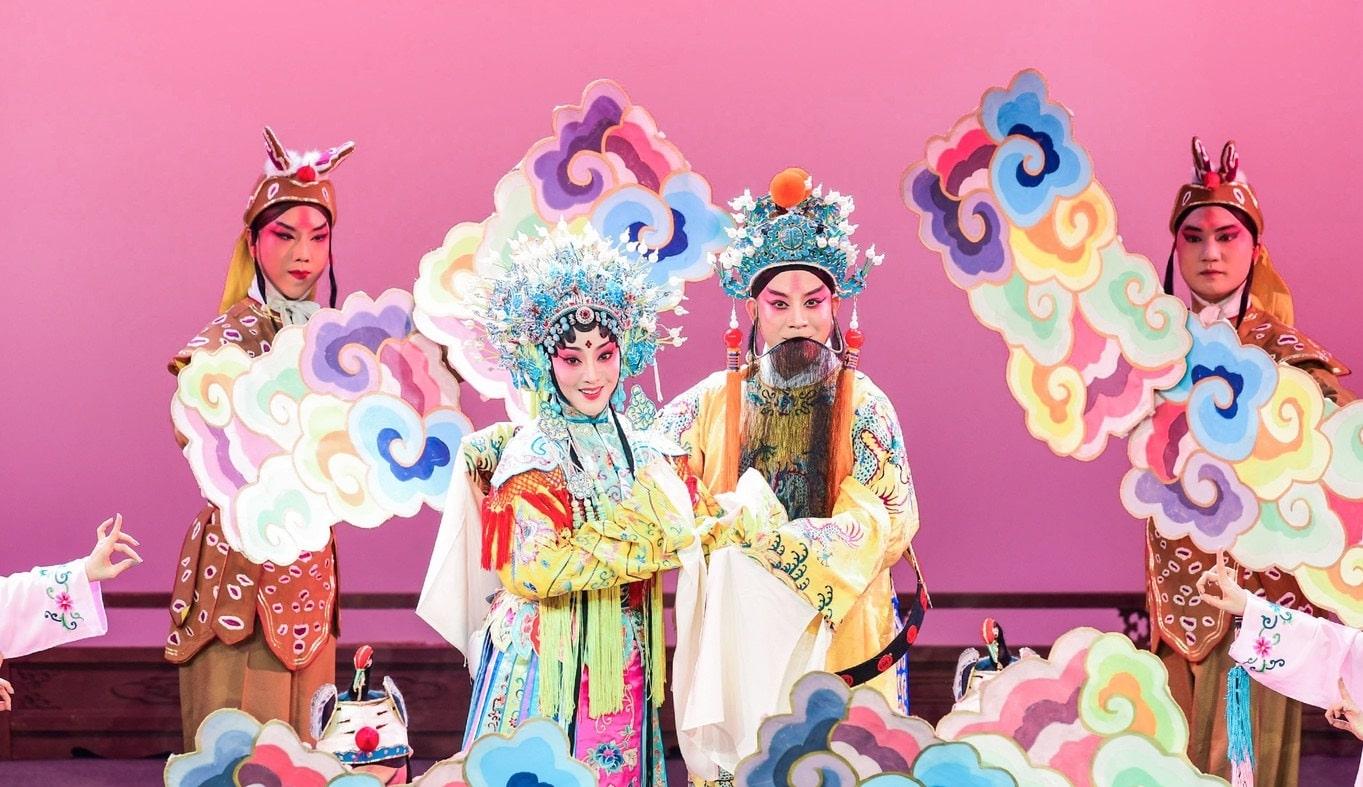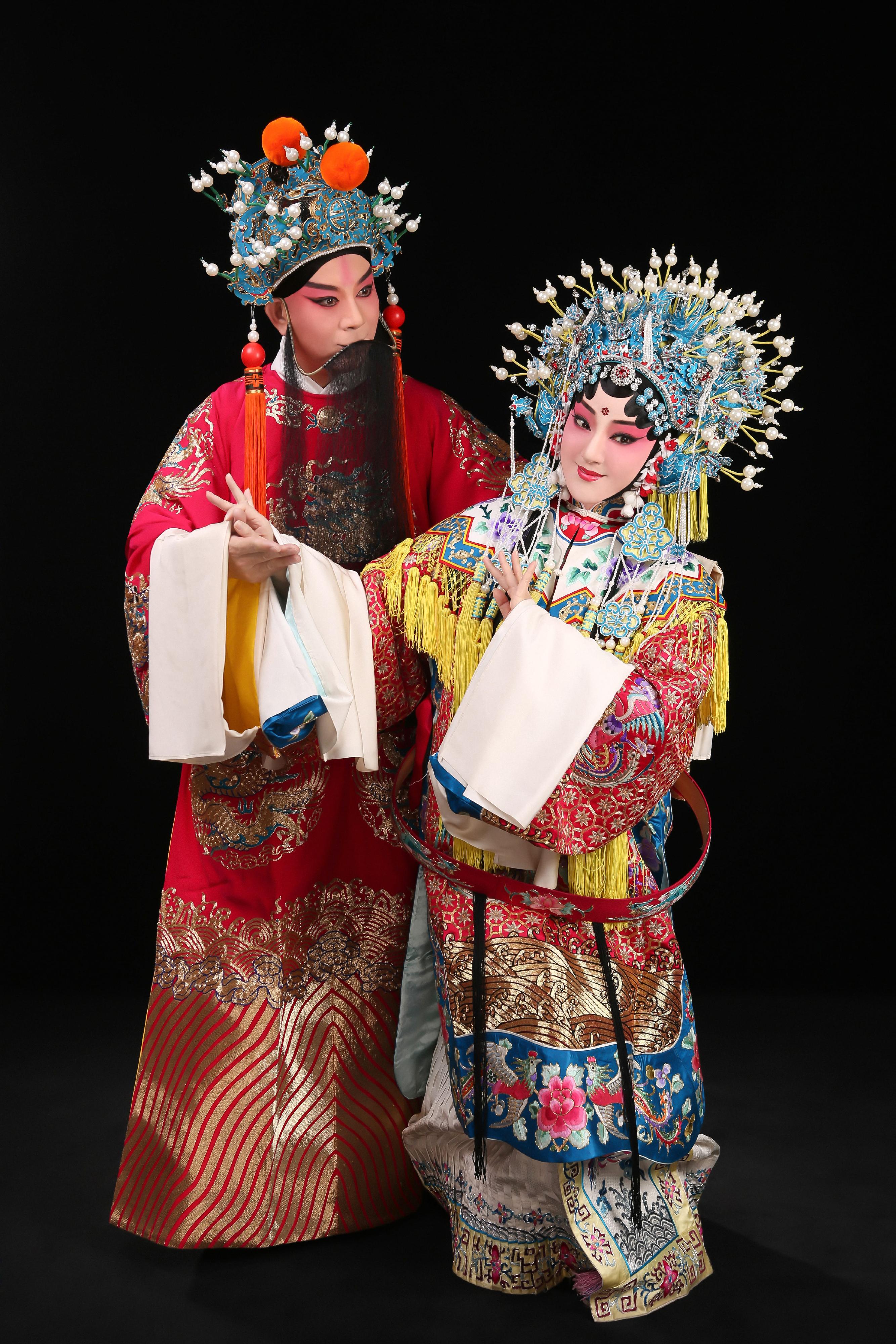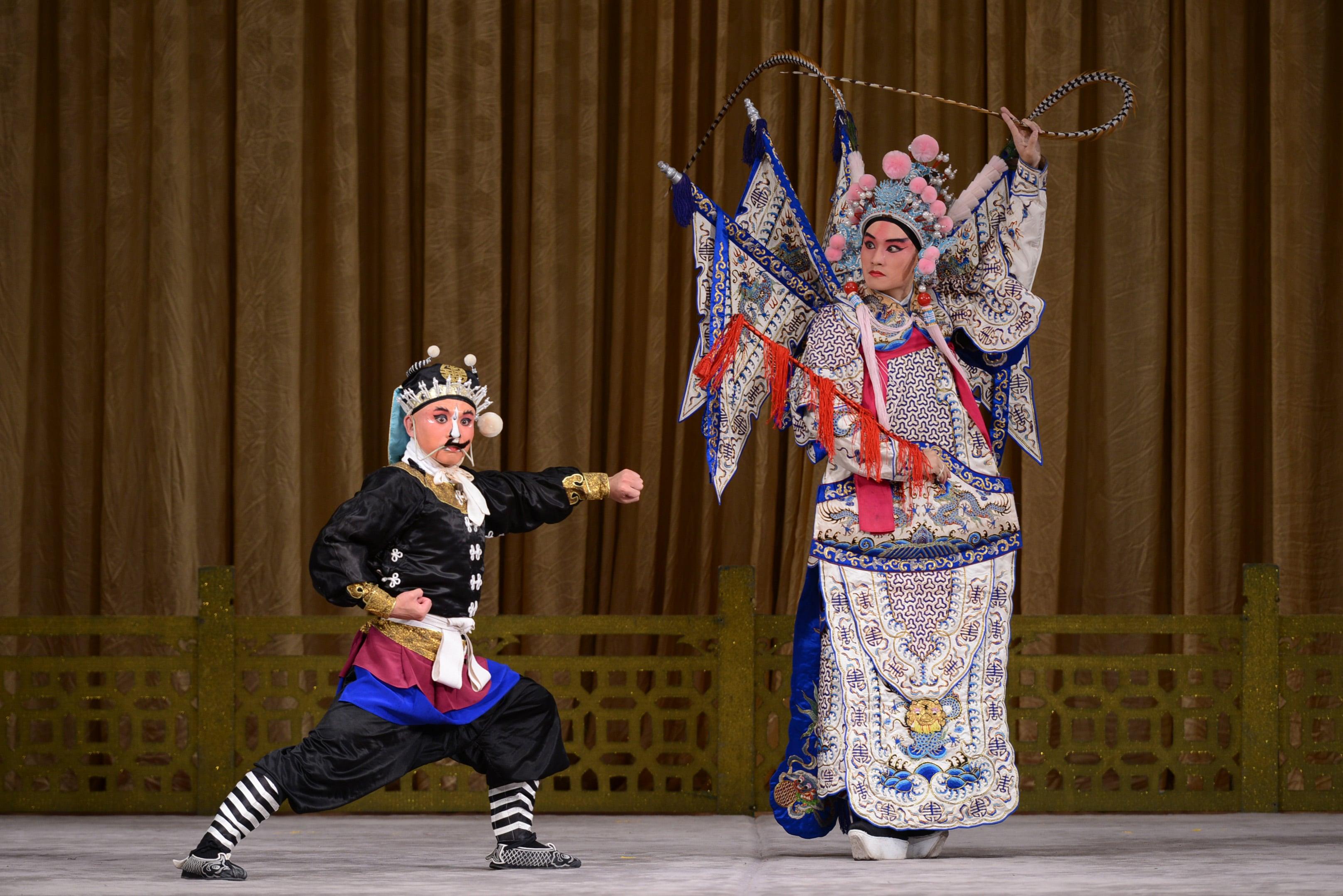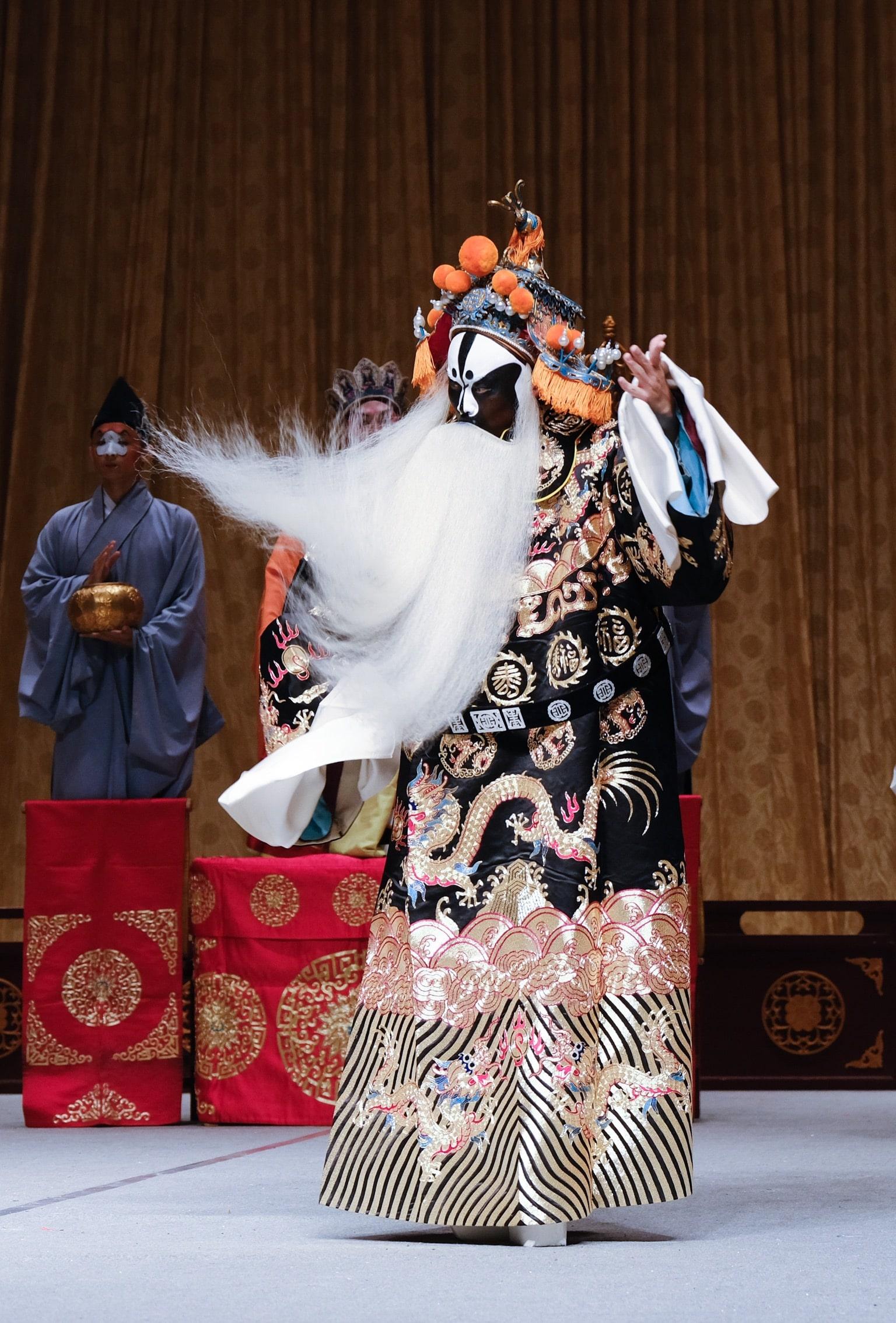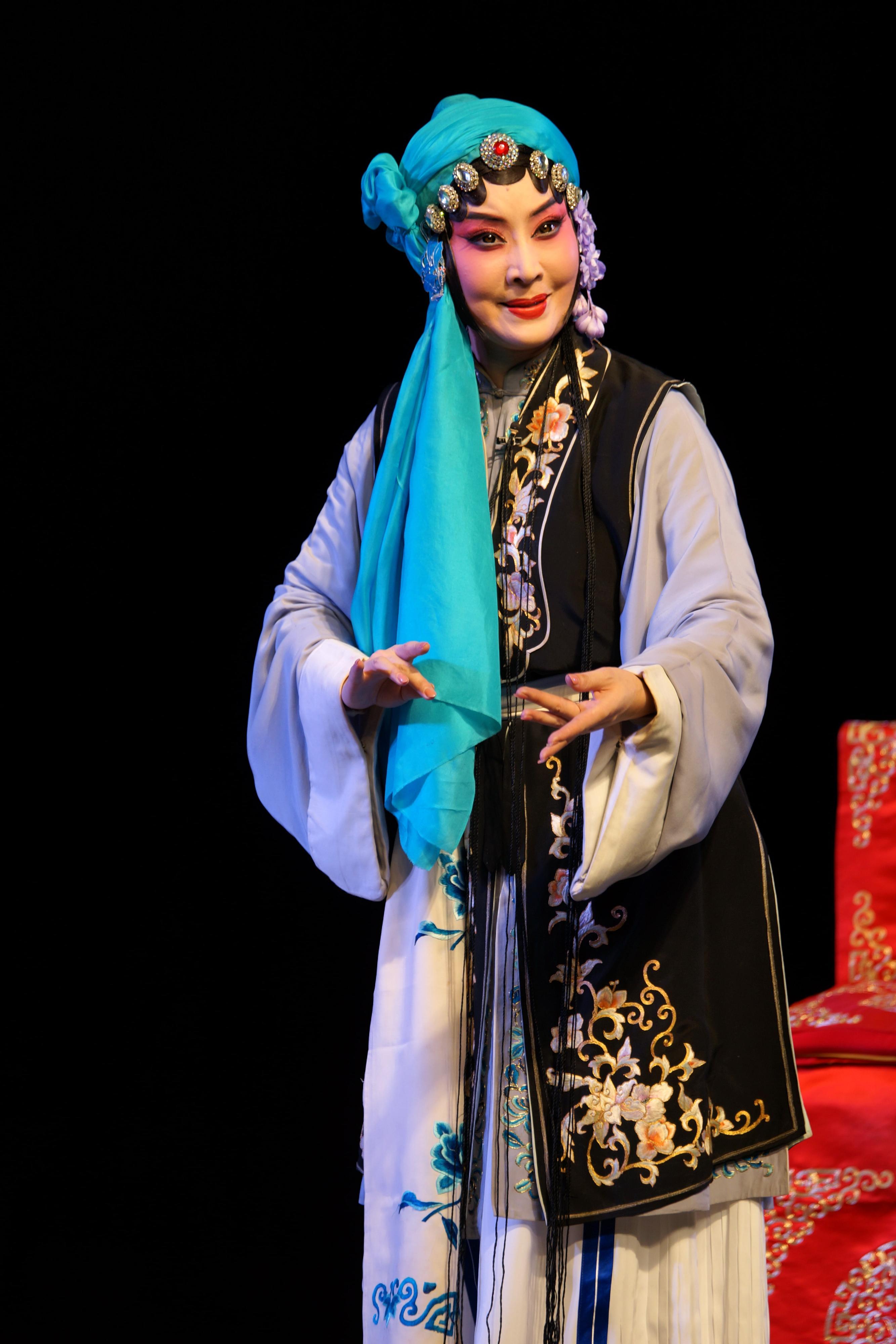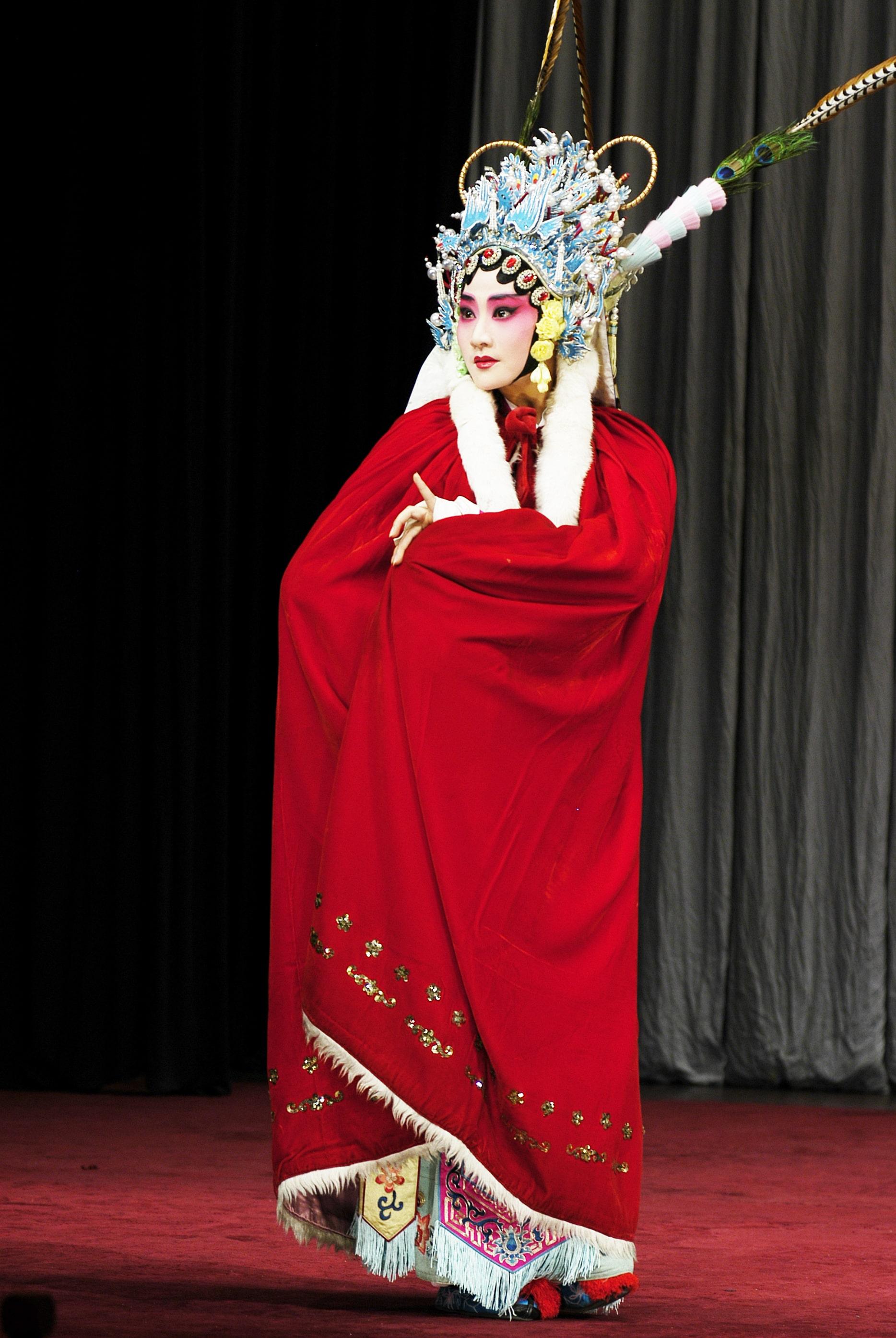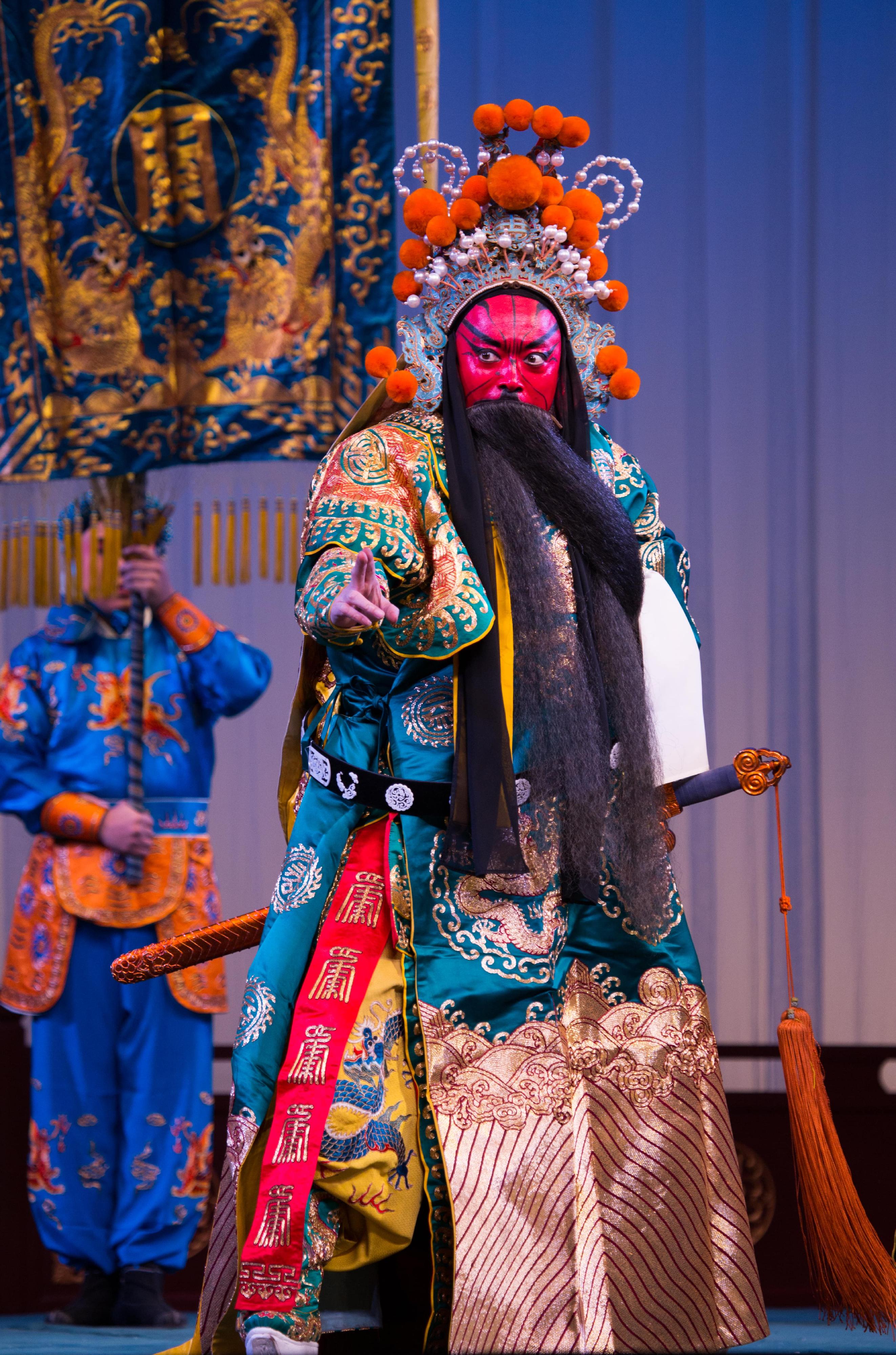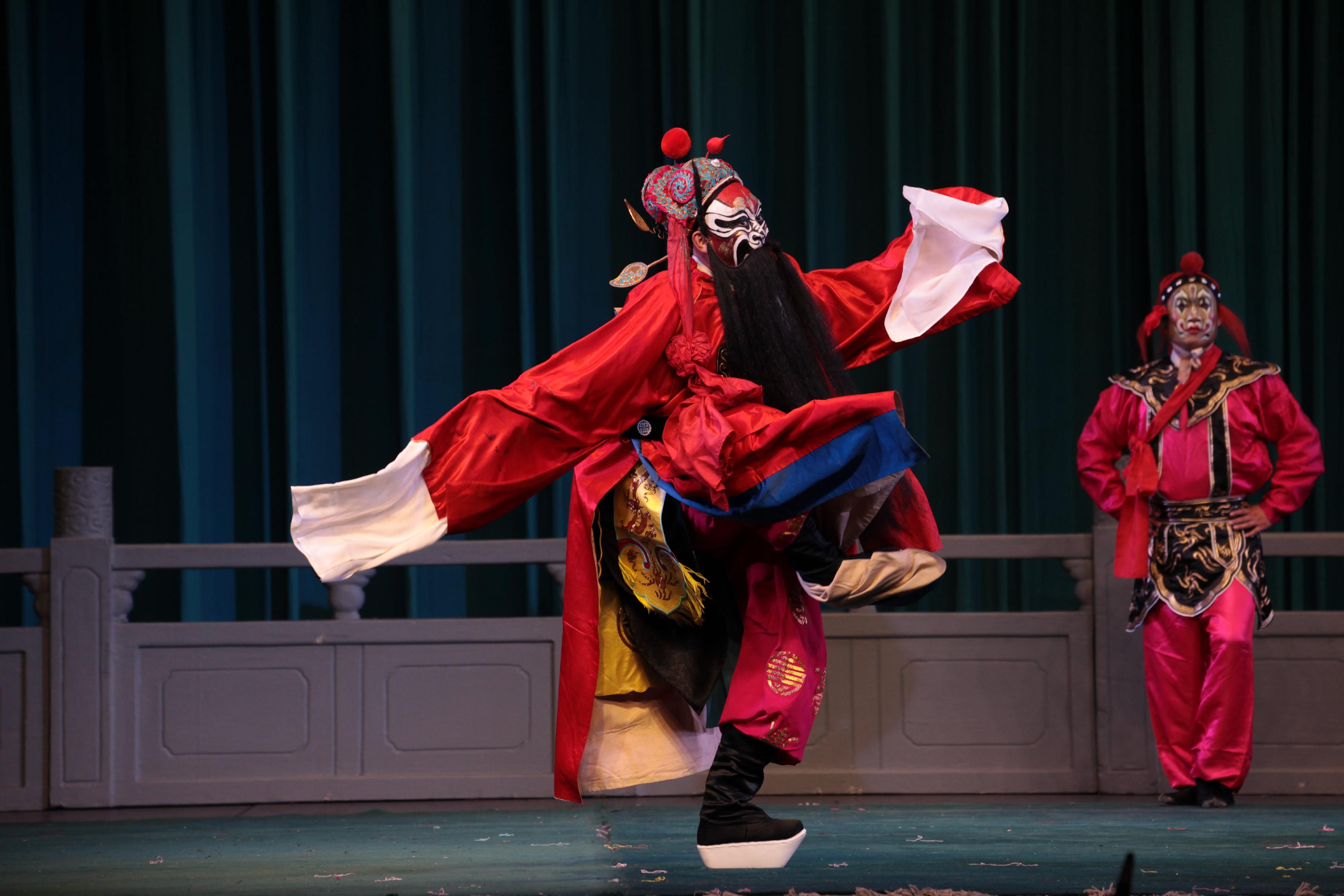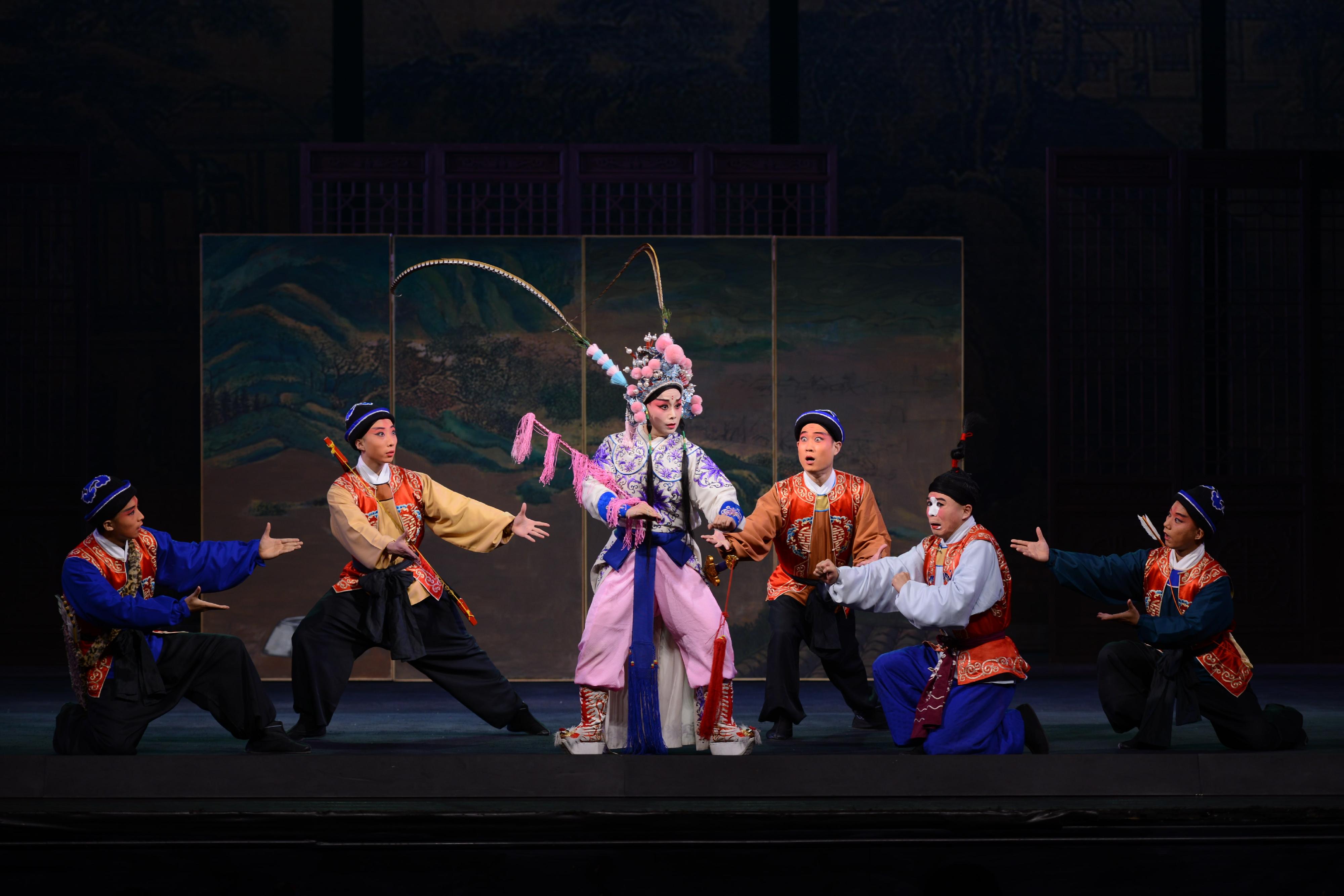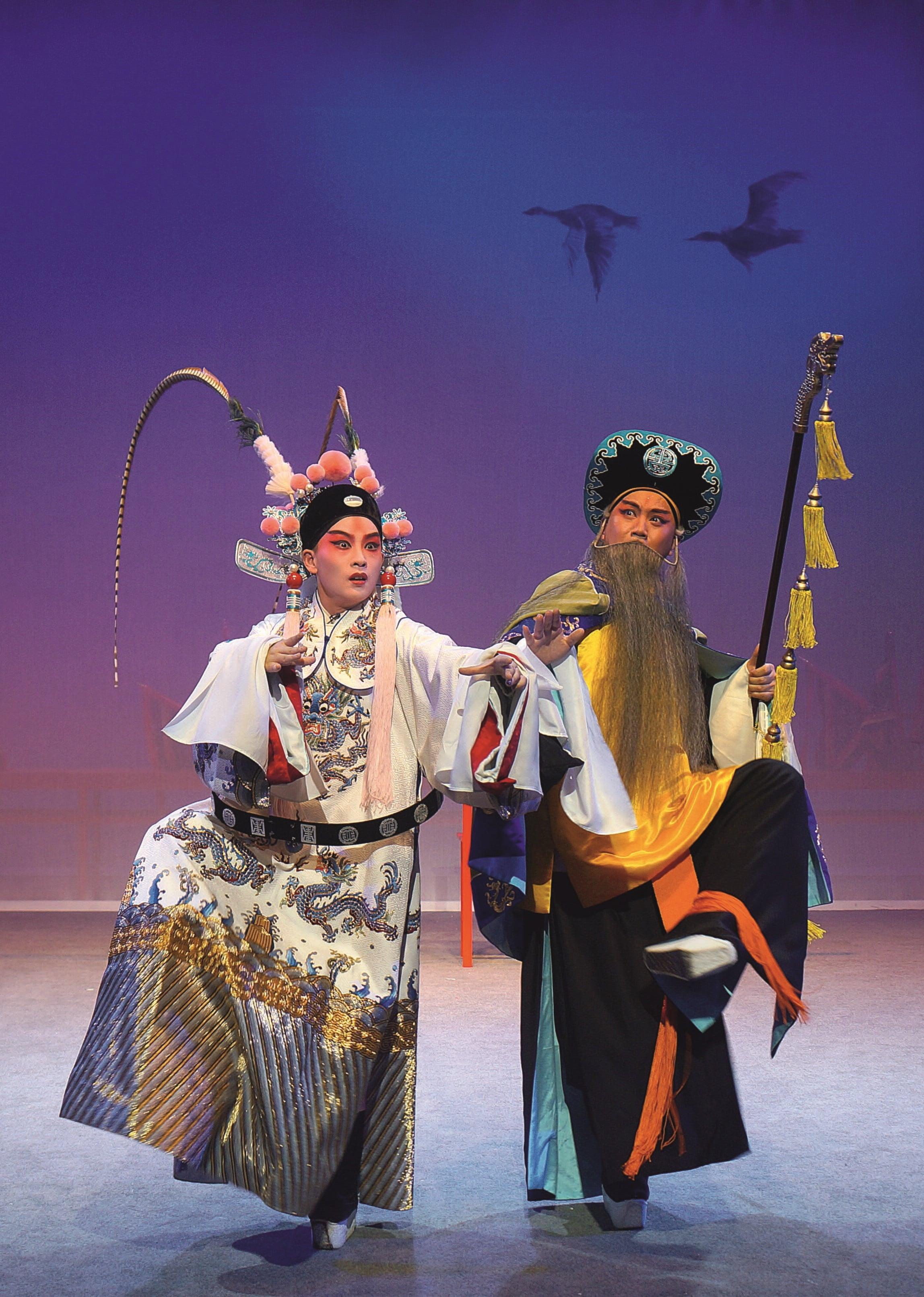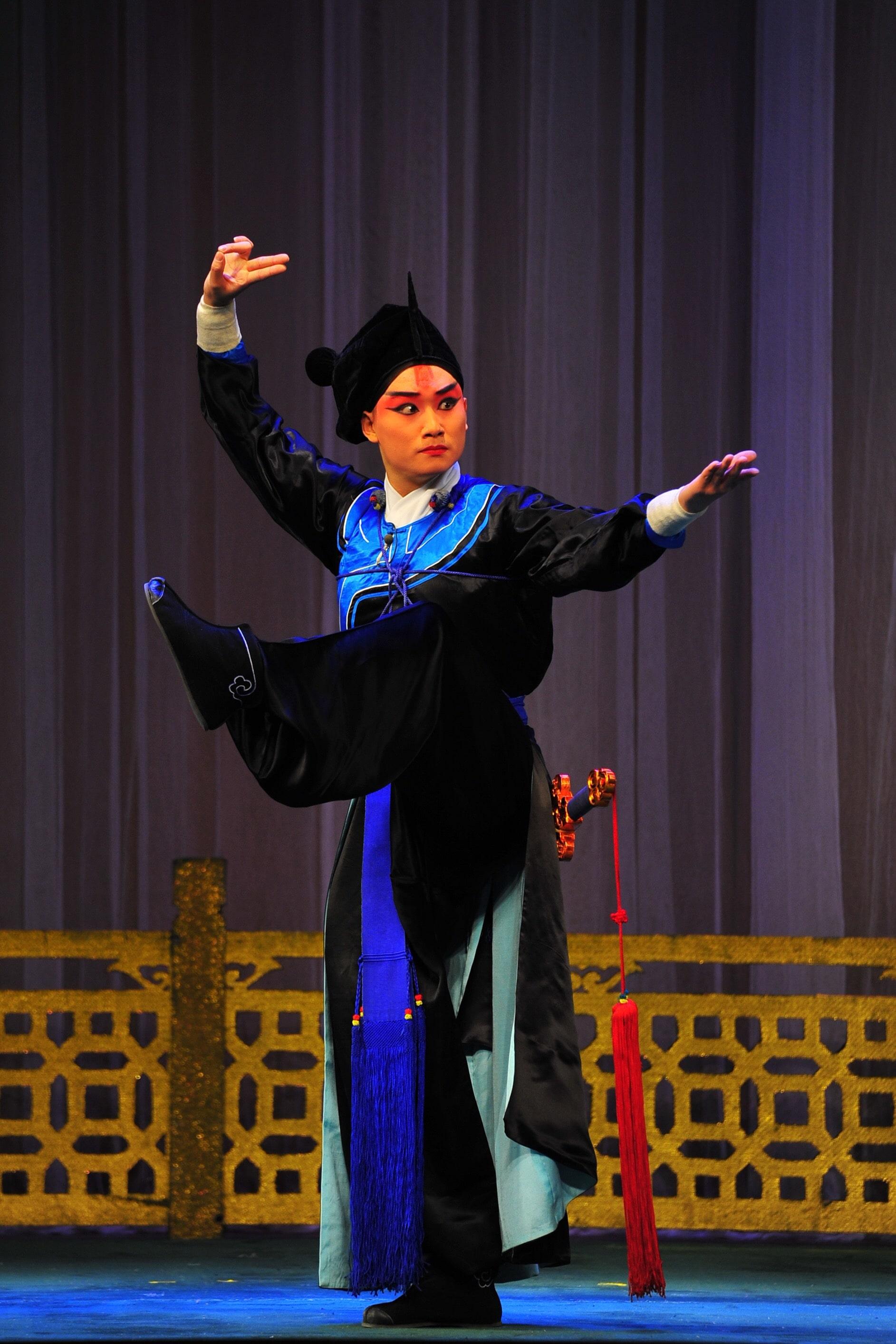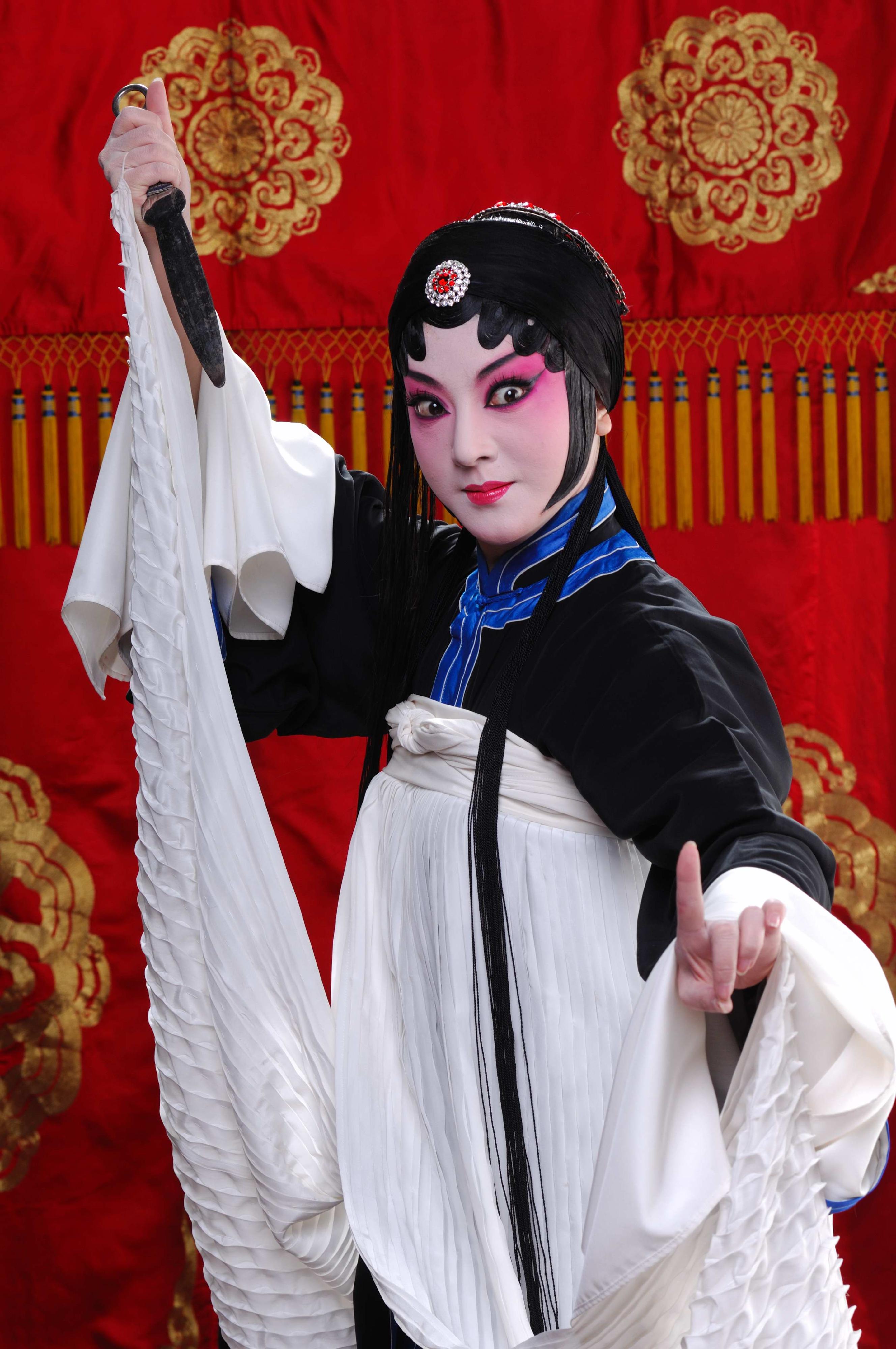Classic Kunqu opera "The Palace of Eternal Life" and excerpts to be performed at inaugural Chinese Cultural Festival in July to showcase essence of northern Kunqu (with photos)
******************************************************************************************
Kunqu opera is performed in the vocal style of kunqiang (also called Kunqu). Kunqiang gained popularity in the Kunshan area of Suzhou during the Yuan and Ming periods. It was refined and improved upon by the literati of Ming dynasty, resulting in a vocal genre of mellifluous charm and a stringent observance of the tonal system. Kunqu opera has become a model for later operatic genres, earning recognition from historians as "the mother of Chinese theatre" and "the source of all operatic genres". In 2001, it was listed by UNESCO as one of the first "Masterpieces of the Oral and Intangible Heritage of Humanity". Unlike its southern counterpart, northern Kunqu's popular plays feature laosheng (old male) and hualian (painted face) roles, with a unique bold and heroic style of northern elegance.
The first performance will stage the grand epic "The Palace of Eternal Life", which is one of the two significant "chuanqi" (a form of Chinese opera script) in the Qing dynasty and a Kunqu classic of the highest literary, musical and dramatic calibre. This version is centred on the tragic love story of Emperor Xuanzong of Tang and Imperial Concubine Yang. The selected classic excerpts, such as "Bestowing Treasures as a Love Pledge", "Storming the Chamber", "Dire News at the Banquet", "Burying the Beauty" and "Dreaming in the Rain", are brilliant with high drama in this epic "chuanqi". Wei Chunrong and Wang Zhenyi will play the roles of Concubine Yang and Emperor Xuanzong, respectively, which form what has been called the best regal pair on the Kunqu stage today.
The following two traditional opera excerpt series will show how the legacy of zaju plays of the Yuan dynasty is preserved. In "The Female Narrative Singer", the zhengdan (female lead) delivers a full set of nine tightly interlinked arias to showcase her vocal skills. "A Farewell Feast" is a bravura piece for jing (painted face) actors that has almost fallen into oblivion, and the current production is revived from the troupe's archive. "The Sword Banquet Trap" requires the actor in a red painted face role to show good vocal skills, with the famous line "the great river flows east" to demonstrate Guan Yu's heroic spirit.
The excerpt series will also showcase plays that are rarely staged: "Lady Zhaojun Going beyond the Great Wall" retains the tradition of keeping a well-balanced act of singing and acting. "Asking the Way" is a martial clown's repertoire of "Five Deadly Venoms" featuring the scorpion. "The Hunt" features wawasheng (child) roles with distinctive singing and acting styles. In addition, the performances of the excerpts are all challenging in terms of vocal and acting skills. For example, "Zhong Kui Marrying His Younger Sister Off" features martial arts displayed by a horde of demons. "Fleeing by Night" requires a very high standard of singing and acting skills from the performer playing Lin Chong. "Looking Homeward" is a fine example of blending the northern and southern Kunqu characteristics, with the aria presented by the laosheng and xiaosheng (young male) to enhance the dramatic moment of the play. "Killing the Tiger" is a signature piece that showcases cishadan (female assassin) roles with a focus on the eyes and facial expressions.
Details of the three performances are as follows:
"The Palace of Eternal Life"
--------------------------------------------------------------------
Date and time: July 19 (Friday), 7.30pm
Main cast: Wei Chunrong, Wang Zhenyi
Synopsis: During the 10th year of the Tianbao reign of the Tang dynasty, Emperor Xuanzong and his favourite Imperial Concubine, Lady Yang, make a love pledge at the Qixi Festival, vowing that they will stay together as husband and wife forever in the Palace of Eternal Life. But his indulgence in cavorting with his consort leads to his negligence in governance. An Lushan leads an uprising, and the Emperor and Lady Yang have to flee. On the way, the troops clamour for Lady Yang's death. The Emperor has no choice but to order Lady Yang to hang herself from a pear tree. The rebellion is put down, and soon it is again the Qixi Festival. The Emperor meets Lady Yang in his dream.
Traditional Opera Excerpts I
---------------------------------------------------------------
Date and time: July 20 (Saturday), 7.30pm
Excerpt "Asking the Way" from "The Chain Scheme"
Main cast: Zhang Nuan
Synopsis: Lü Bu, under order from Dong Zhuo, is fighting against various armies, including that of Cao Cao. He first sends a spy to gather military intelligence, who reports back to him.
Excerpt "A Farewell Feast" from the Qing Court Opera "Shengping Baofa"
Main cast: Shi Shuyue
Synopsis: Monk Xuanzang is under the Emperor's order to fetch the Tripitaka (Dazang) scriptures from the West. The emperor has ordered governors from the Eighteen Routes to bid him farewell at the Shili Pavilion outside Chang'an. Xuanzang has long heard about the heroic exploits of Yuchi Gong and requests that he narrate them. Yuchi Gong and the others request that Buddhist names be given to them, before Xuanzang embarks on his journey to the West.
Excerpt "The Female Narrative Singer" from "The Story of a Street Vendor"
Main cast: Gu Weiying
Synopsis: Scholar Li Yanhe of Chang'an is separated from his family by his concubine, who plots to seize the family fortune with her lover. Nanny Zhang Sangu, seeing the young son Chunlang without means, sells him to a battalion commander. Thirteen years later, Sangu and Yanhe earn a living by performing narrative singing. One day they arrive at a courier hostel and meet Chunlang, who has inherited the post of battalion commander and is looking for storytellers. Yanhe and Sangu notice the resemblance of the official to someone they know. After much subtle double-checking, father and son are finally reunited.
Excerpt "Lady Zhaojun Going beyond the Great Wall" from "The Tomb of Wang Zhaojun"
Main cast: Zhang Yuanyuan
Synopsis: Lady Zhaojun holds a grievance against courtiers who fail to protect the country, leaving her to be married off to far-flung Xiongnu in appeasement. She exits Yanmen Pass to enter Xiongnu territory with a pipa in hand. She turns around to look at her homeland in sadness and goes on her journey of no return.
Excerpt "The Sword Banquet Trap" from "To the Banquet Armed"
Main cast: Yang Fan
Synopsis: During the Three Kingdoms period, Admiral Lu Su of Dongwu invites Guan Yu to a banquet across the river, harbouring the intent to seize him as a hostage. Guan Yu, accompanied by only Zhou Cang, attends the banquet. During the banquet, Guan Yu and Lu Su engage in a war of words. Guan Yu feigns intoxication, threatens Lu Su with his sword to accompany him to the riverbank and boards a boat home in safety.
Traditional Opera Excerpts II
---------------------------------------------------------
Date and time: July 21 (Sunday), 2.30pm
Excerpt "Zhong Kui Marrying His Younger Sister Off" from "Tian Xia Le - The Story of Zhong Kui and Du Ping"
Main cast: Yang Jianqiang
Synopsis: Zhong Kui is stripped of his title of top scholar in the imperial examination because of his ugly looks. He kills himself by hitting his head against the palace gate in indignation. The Emperor of Heaven appreciates his upright character and confers upon him the title of Vanquisher of Evil Spirits. Zhong Kui betrothed his sister to Du Ping when he was alive. To honour his promise, he returns home with a ghost band at night to marry off his sister.
Excerpt "The Hunt" from "The Story of the White Rabbit"
Main cast: Liu Wei
Synopsis: Yao Chilang, son of Binzhou Grand Co-ordinator Liu Zhiyuan, goes hunting. While chasing a white rabbit shot by an arrow, he meets a woman beside a well. The woman tells him about her suffering; her husband left home for the army, and his brother and sister-in-law have been forcing her to remarry. When she resists, they torture her. Yao Chilang takes pity on the woman and promises to find her husband.
Excerpt "Looking Homeward" from "Su Wu Herding Sheep"
Main cast: Yuan Guoliang, Weng Jiahui
Synopsis: During the reign of Emperor Wu of the Han dynasty, Su Wu is sent as an envoy to Xiongnu, where he is incarcerated. He is then sent to herd sheep in Beihai. The Han court sends Li Ling to rescue him. Li Ling is beaten and surrenders. The Chanyu of Xiongnu orders Li Ling to persuade Su Wu to surrender. Su Wu chastises Li Ling, who backs off in shame.
Excerpt "Fleeing by Night" from "Lin Chong on the Run"
Main cast: Liu Heng
Synopsis: After killing Lu Yuhou in the wake of the burning of the fodder yard, Lin Chong hurries off to join the rebel group in Liangshan, laying low during the day and hitting the road at night.
Excerpt "Killing the Tiger" from "The Prophecies of Taoist Monk Iron Headgear"
Main cast: Wei Chunrong, Shi Shuyue
Synopsis: Towards the end of the Ming dynasty, King Chuang Li Zicheng's army breaches Beijing. Palace maid Fei Zhen'e, not wanting the Ming dynasty to end, pretends to be a princess to find a chance to assassinate King Chuang. King Chuang unexpectedly marries her to his general Li Gu "The Tiger". On their wedding night, Zhen'e makes Li drunk, kills him and then herself in the name of her country.
The Northern Kunqu Opera Theatre, established in 1957, is the only professional Kunqu troupe north of the Changjiang River. It holds a significant position in carrying forth and developing the art form today. Over the years, the troupe has inherited, created and adapted many outstanding traditional plays, such as "The Peony Pavilion", "The Romance of the West Chamber" and "The Jade Hairpin", and has created new pieces like "Guan Hanqing" and "Beyond the Great Wall". It has also visited places such as the United States, Finland, Sweden, Italy, France, Germany, Denmark, Spain, South Korea, Japan and Switzerland, and has received high acclaim.
The three performances will be held at the Auditorium of Kwai Tsing Theatre. Each performance will run for about three hours, including an intermission of 15 minutes. Lyrics and dialogues are with Chinese and English surtitles. Tickets priced at $200, $300, $400 and $500 are now available at URBTIX (www.urbtix.hk). For telephone bookings, please call 3166 1288. For programme enquiries and concessionary schemes, please call 2268 7325 or visit www.ccf.gov.hk/en/programme/the-northern-kunqu-opera-theatre/.
A meet-the-artists session entitled "The Legacy and Performing Styles of The Northern Kunqu Opera Theatre" (in Putonghua) will be held at 7.30pm on July 18 (Thursday) at AC2, Level 4, Administration Building, Hong Kong Cultural Centre. The speakers include the head of the troupe, Yang Fengyi, and performers Wang Zhenyi, Wei Chunrong and Yang Fan, while Chinese opera researcher Chan Chun-miu will be the moderator. In addition, a talk on Northern Kunqu opera, "The Timeless 'Song of the Rainbow Dress' from 'The Palace of Eternal Life' and 'Su Wu Herding Sheep'", will be held at 5pm on July 22 (Monday) at the Theatre, Block I of Jao Tsung-I Academy. The speakers include the troupe's performers, Yuan Guoliang and Weng Jiahui, and the Northern Kunqu Opera Theatre Ensemble will be the live ensemble. Both activities will be conducted in Putonghua with free admission, and online registration is required (www.lcsd.gov.hk/CE/CulturalService/Programme/en/chinese_opera/programs_1716.html#tab_13_0). Limited seats are available on a first-come, first-served basis.
The CCF also features the "Chinese Opera En Route to Campus", which will be held at the campuses of the participating secondary schools from late June to July. The programme will be carried out in an easy-to-understand and interactive format, including guided talks, demonstrations, interactive activities and exhibitions, to enable the students to explore the artistic characteristics of different Chinese operatic genres, and to experience the joy and cultural value of opera performances. The programme will be conducted in Cantonese with free admission. Interested schools can call 2268 7280 for details or visit www.abo.gov.hk/en/eventDetail/1370.
The CCF, presented by the Culture, Sports and Tourism Bureau and organised by the LCSD's Chinese Culture Promotion Office, aims to enhance the public's appreciation of Chinese culture and cultivate citizens' national identity and cultural confidence. The inaugural CCF is being held from June to September. Through different performing arts programmes in various forms and related extension activities, including selected programmes of the Chinese Opera Festival, exemplary local arts projects recognised by the China National Arts Fund, performing arts programmes from arts and cultural organisations, film screenings, exhibitions, talks and more, the festival allows members of the public and visitors to experience the broad and profound Chinese culture with a view to promoting Chinese culture and patriotic education as well as enhancing national identity among the people of Hong Kong, making contributions to the steadfast and successful implementation of "one country, two systems". For details, please visit the CCF website www.ccf.gov.hk.
The LCSD has long been promoting Chinese history and culture through organising an array of programmes and activities to enable the public to learn more about the broad and profound Chinese culture. For more information, please visit www.lcsd.gov.hk/en/ccpo/index.html.
Ends/Thursday, June 27, 2024
Issued at HKT 11:00
Issued at HKT 11:00
NNNN





